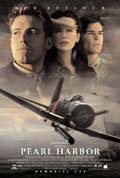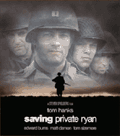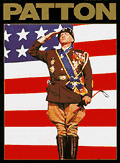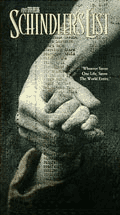World War II Movies, Part 1

From "Schindler's List" to the summer blockbuster "Pearl Harbor"
by Beth Rowen |
 Source: Internet Movie Database Related Links |
The release of Pearl Harbor continues a recent trend that has seen several World War II-themed movies storming theaters. Since Steven Spielberg's gripping Saving Private Ryan debuted in 1998, a variety of others have premiered to varying degrees of success, notably Life Is Beautiful, Jakob the Liar, The Thin Red Line, Enemy at the Gates, and U-571. Here's a look at the best World War II films, from movies that depict the art of war to those that examine the psychology of life in the trenches.

Saving Private Ryan (1998)
Spielberg's masterpiece about World War II, which begins with a shocking 25-minute sequence portraying the chaos and carnage at Omaha Beach, manages to honor the heroism of American soldiers without glorifying war. Fifty years and several movies later, Ryan is considered the first film to truly capture the experience of D-Day on film.
Matt Damon, Edward Burns, and Tom Sizemore each give impeccable performances and several unforgettable moments come from virtual unknowns, namely Jeremy Davies as Corporal Upham, a frightened pacifist, and Giovanni Ribisi as the heroic Medic Wade.

Patton (1970)
Patton cleaned up at the Oscars, winning seven trophies, including Best Picture, Best Actor (George C. Scott, though he refused the award), and Best Director (Franklin Schaffner). Scott perfectly captured the general's contempt for diplomacy, as well as his complex and belligerent personality. The actor's unparalleled performance remains one of Hollywood's greatest moments. The film did not attempt to smooth out the general's rough edges; rather, it depicted the general as the brilliant yet flawed human that he was.
|
The closing lines of The Bridge on the River Kwai, "Madness, madness, madness," are among the most argued over and memorable in cinema. |
The Bridge on the River Kwai (1957)
Another big Oscar winner, with trophies for Best Picture, Best Director (David Lean), Best Actor (Alec Guinness), and Best Cinematography (Jack Hildyard). This psychological drama blurs the line between hero and villain as Alec Guinness's Col. Nicholson and Sessue Hayakawa's Col. Saito fight a battle of wills as the Japanese leader, Col. Saito, forces British POWs, under Nicholson, to build a bridge over which the Japanese will move arms. Nicholson develops a prideful obsession with erecting the perfect structure, disregarding its purpose and beneficiary. The film's closing lines, "Madness, madness, madness," are among the most argued over and memorable in cinema.
Midway (1976)
Before Pearl Harbor, Midway was the definitive naval-air battle movie. A silly subplot about a naval officer (Charlton Heston) and his junior officer son distracts from the drama surrounding the 1942 battle. Nevertheless, the film, with a huge all-star cast (Heston, Henry Fonda, James Coburn, Hal Holbrook, Robert Mitchum), realistically captures the tension of the decisive battle. Stock footage from old Japanese war movies and authentic war footage lend an air of authenticity to the film.

Schindler's List (1993
Undeniably one of the best films of the 1990s. Veering from his trademark high-tech blockbuster, Steven Spielberg directed (and won his first Oscar for the effort) the black-and-white historical epic. Liam Neeson is outstanding as the complex WWII profiteer who saved thousands of Jews by employing them in his factory and went broke in the process. Ralph Fiennes is equally convincing as the sadistic commandant who presides over the Plaszow Forced Labor Camp.
Valkyrie (2008)
It is World War II and all is not quiet in the Nazi ranks: it is up to German military officers and politicians to take down the Nazi regime before it destroys their nation. Colonel Claus von Stauffenberg and his generals hatch a plan that will dismantle the Nazi machine and save Germany from Hitler. The result is operation Valkyrieâthe assassination of Adolf Hitler. Once they succeed in assassinating the Führer, the army plans to take control of Berlin. The film focuses on von Stauffenberg (Tom Cruise) and the events that unravel while he attempts to topple the Nazi regime. This historical thriller poses the unanswerable question of what might have been.







